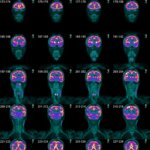With the guide of a health professional, the use of keto diet therapy may be beneficial for epilepsy and other neurological conditions, new research shows.
The study was released in Neurology: Clinical Practice and involved the completion of questionnaires sent to the medical professionals of close to 2,000 adult patients taking ketogenic diet therapies.
The end result was that the ketogenic diet therapies were beneficial for epilepsy and other neurological conditions, such as dementia, multiple sclerosis, Parkinson’s disease, and even brain tumors, the findings suggest.
But given the findings, the use of ketogenic diet therapies for such usage should first be carefully assessed and implemented by a medical professional.
“They should only be employed with the support of medical professionals who are familiar with them as a clinical tool,” Mackenzie Cervenka, co-author of the study, stated in a news release.
“The concern is when people follow them unsupervised. Our new recommendations are designed to make it easier for health care providers to give proper guidance.”
“Ketogenic diet therapies may be safe and effective in treating adults with drug-resistant epilepsy and there is emerging evidence supporting the use in other adult neurologic disorders and general medical conditions as well. Therefore, expert recommendations to guide optimal care are critical as well as further evidence-based investigation,” the authors concluded in their journal article.


